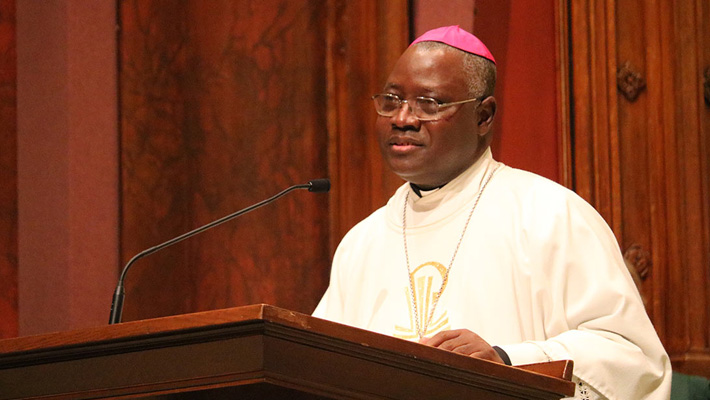ABUJA, MARCH 3, 2020 (CISA)-Archbishop Ignatius Kaigama of the Catholic Archdiocese of Abuja has lamented the government’s negligence of its citizens and called on the political class to focus on coming up with solutions rather than blame games.
“…how does one explain the uninterrupted movement from one crisis to another? If it is not the murderous insurgents ravaging rural communities and lives in the North East, then it is the herdsmen laying waste towns and villages and leaving tales of death and destruction in their trail,” he said.
“The trend of resorting to self-help is indicative of the distrust of the government and its security agencies who are seemingly overwhelmed by criminals. All these call for concerted and harmonious efforts from all leaders – political, traditional, religious to work together to pull our people away from the precipice,” he added.
Speaking March 1 in Abuja during Mass marking the beginning of the first Catholic Bishops’ Conference of Nigeria (CBCN) plenary of 2020, the Archbishop noted that time had come for everyone to work towards permanent solutions.
He called on leaders to strive to bring citizens together and use all the resources to confront the common challenges and avoid, “any impression that suggests complacency or outright lack of interest in the plight of innocent victims.”
“Our country seems to be like that man who fell among armed robbers. We are battling with terrorists, cultists, criminals, kidnappers, economic saboteurs, unscrupulous political leaders, religious bigots and partisan traditional rulers. It seems everyone is just passing by, including those who shape our policies and into whose hands we have entrusted the economy, the security, the unity and stability, the present and the future of our children. We need Good Samaritans (Substitute Samaritans with Nigerians)!”
He called on the political class to replace blame games with efforts at bringing solutions.
“This is no time to play politics of division or to exaggerate fault lines of religion, ethnocentrism or region to further set one segment of the country against another. This is not the time to bicker about who could be the best president, the best minister or the best army chief. It is equally shameful to reduce our misfortunes into an argument about what faith has suffered more. Isn’t it shameful and regrettable enough that dozens die every day, regardless of whatever faith they belong to?” he posed.
He noted that when such rhetorics of division are allowed to dominate the socio-political space in the face of a grave danger, criminals carry the day.
“We cannot afford to give people without conscience the honour of dividing us further or determining our daily discourse. In normal climes, terrorism and violent criminality are very hard to rout out. With disunity, distrust, fault-finding and finger-pointing, the hope for solutions is dead on arrival,” he said.
The plenary will run under the theme, “The Word of God: A Lamp to my Feet and a Light to my Path.”

